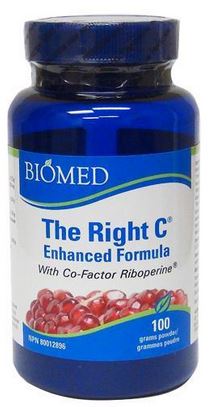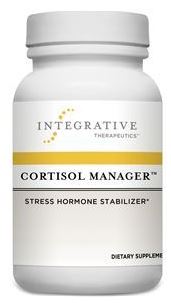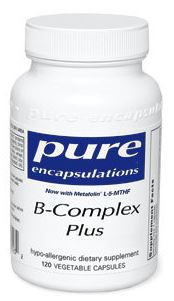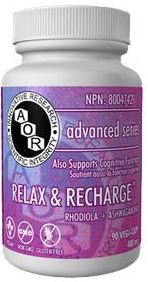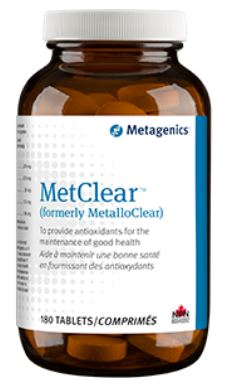How to Relieve Allergies Naturally? | Best Natural Remedies for Allergies and Sinus
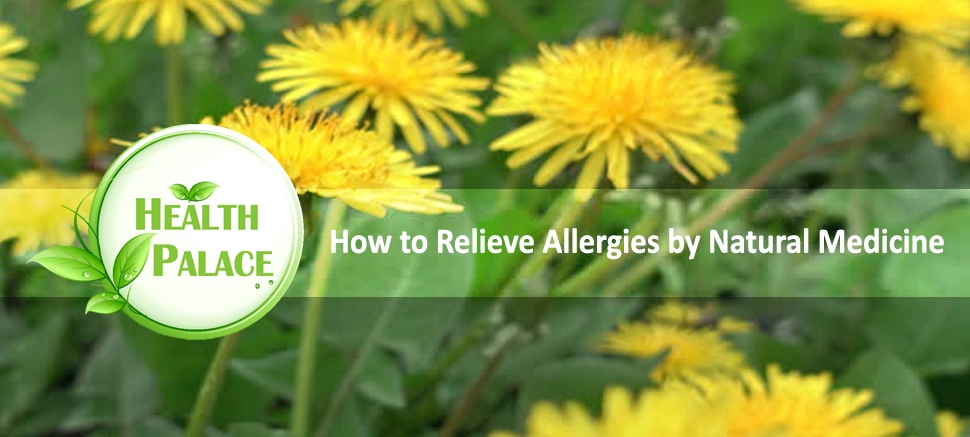
How to Relieve Allergies
by Natural Medicine

Spring and summer can be often challenging for those with pollen allergy as unpleasant symptoms of seasonal allergy such as itchy eyes, runny nose, nasal congestion, frequent sneezing, and sinus headaches gradually appear. Improving diet, optimizing body's nutrients, and considering proven natural medicines are shown to significantly reduce the severity of allergic symptoms and improve the overall health.
An article from Journal of allergy and clinical Immunology suggests that during past four decades the number of those with allergy have risen and now approximately 50% of Americans have allergy. This article provides further statistics indicating that those with pollen allergy are most likely to develop asthma.
Scientists and researchers have looked for reasons to explain the rising number of individuals with allergies and they have found links to the diet, imbalance minerals and vitamins, heavy metal toxicities, stress, usage of antibiotics, pesticides, and immunological factors. These studies suggest simply when the body's chemistry is out of balance, likelihood of allergic reaction will increase, so the treatment should not suppress the symptoms rather should address the main cause.
What is an allergic reaction?
An allergic reaction is caused by the excessive immune response to some non-threatening foreign compounds called antigen. Specialized B cells from the immune system identify the foreign body then produce antibody against it. Antibodies bound with the foreign bodies and from a complex calling for other immune cells called mast cells to come and remove them, as a result the histamine and other chemicals will be released and cause an inflammatory effect. Allergic symptoms are caused by higher than normal release of histamine.
Why some people are allergic and some are not?
Scientists argue that the nutritional state of the mast cells and their resistance to death by the immune complex (antigen-antibody) play important role. Also it is suggested that the condition of adrenal gland and liver have an impact on the severity of the allergic reactions and any disruption of adrenal or liver function would affect the mast cells health and their defense capability.
Health of every one of these pillars is based on their nutritional supply. If they are well maintained, the body's respond to the antigen-antibody complex will be handled much easier and with minimum effect.
Healthy adrenal glands produce adequate amount of cortisol; and healthy liver is able to help the immune system by providing nutrients and enzymes such as Histaminase to neutralized the histamine. Healthy mast cells with sufficient nutrients such as calcium and phospholipids for their cell wall structure are able to better tolerate the antigen-antibody complex.
Allergies and Diet:

Compelling number of research and evidence since 1930's up to now have shown that declining quality of the food contributes to an increase in the number of cases with allergies. Animal studies show those fed with processed food have developed significantly higher number of allergies and other health issues, when compared with those fed with wholesome fresh food.
Preservatives, additives, artificial colors, artificial flavors, excessive sodium and sugar in processed food, will upset the vital minerals balance which greatly contributes to allergies.
Research suggest to reduce the seasonal allergy symptoms, individuals should almost eliminate the consumption of processed food and instead consume more fresh protein, vegetables and fruits. Limiting consumption of foods from grass family like wheat, rye, and corn will decrease the possibility of cross sensitivities, and this is also indicates for dairy products which contain some amount of grass compounds from cattle food.
Identifying and avoiding the synergistic allergens will help to reduce the severity of the allergy. An individual with mild allergy to pollen would develop more severe symptoms when consumes certain foods. For example ragweed allergy may get worse by consuming egg, or consuming selfish could intensify the allergy to dust.
Consuming foods containing certain toxic metals which might be already high in the body, will increase the intensity and frequency of the allergic symptoms. For example, wines and beers are high in copper and yeast, so they will intensify the allergies specially in those with excessive copper or yeast over growth in their body. Plus high sugar foods will make the copper more bio-available and trigger the allergies.
Allergies and nutrients:
Some nutrients like healthy fats, vitamins, and minerals are essential to a healthy immune system and their deficiency and sub-optimal level interrupts the normal immune function.
In a study a group of volunteers successfully reduced or eliminated their respiratory allergic symptoms while taking a combination of sufficient nutrients including magnesium, zinc, selenium, potassium, B complex, Vitamin C with Bioflavonoid, omega 3 and GLA.
According to research, vitamin b12 can benefit those with seasonal allergies. Vitamin B12 may involve in the maturation of white blood cells. Studies suggest those with allergies have lower type of white blood cells called lymphocyte T CD8+. These type of T cells provide down regulating function, and require a sustained and elevated serum B12 to mature and be able to perform their role. The sublingual B12 is the bio active from and absorbs to the blood in a more efficient way. In a double blind study Individuals who were on daily dosage of 3000 mcg B12 lozenges show reduction in total weekly symptoms compared to the placebo group. Improvement was more significant for symptoms of sneezing, runny nose, nasal congestion, nasal itch and itchy eyes.
Recently the immunological effects of vitamin D has been more researched. Vitamin D's immuno-modulatory function has been studied in relation to many immune diseases including, rheumatoid arthritis, MS, Asthma, Allergies, and more. Data analysis found consistent association between presence of both food and environmental allergies and lower levels of Vitamin D in individuals; and they found this relation to be even more significant in children and adolescents. The importance of vitamin D level in relation to allergies is explained by it its role in down regulating inflammatory response of innate immune cells.
Allergies and stress:
Stressors which impose biological pressure on the body are including emotional stress, hormonal stress, chemical pollution, and infectious sources from bacteria, virus, and fungi.
Frequent exposure to stress at any level of severity demands for action from our adrenal glands. So adrenal glands will need more nutrients to cope with stress, then they source the nutrients from the body's reserves such as blood stream, bones, soft tissues, and liver.
Adrenal glands are almond sized glands on top of each kidney and produce different hormones. One of the main hormones produced by adrenal glands is called cortisol. One important function of the cortisol hormone is in fact its anti-inflammatory role.
Adrenal insufficiency is considered major cause of allergies. Adrenal insufficiency is often due to chronic stress or fatigue. Hair mineral analysis can effectively detect the allergies related to adrenal insufficiency by looking at the tissue concentration and the ratio of the essential minerals and/ or existence of toxic minerals.
Adrenal specifically requires Vitamin A, C, E , B5, minerals such as manganese, magnesium, potassium and Amino acids for its optimal function. Deficiencies and imbalance of the essential nutrients or toxic overload, block the normal physiological function of adrenal. Therefore stressed individuals require more of essential nutrients and should get rid of the toxic burden to help their adrenal.
Allergies and toxins:

Toxins such as airborne pollutants, chemicals used in agriculture and food production, industrial pollutants, plus those toxins that are resulted from our body's metabolism, all can initiate different physiological disorders which in turn will negatively impact thyroid gland, adrenal glands, and immune system.
Toxins such as heavy metals severely interfere with the adrenal gland activity. Research suggests that copper toxicity causes allergies particularly in those with low adrenal function. Excess copper depletes the Vitamin C, Folic Acid, Zinc, and other nutrients which are required for adrenal health. Copper overload is not detectable by usual blood tests, it is only identified by Tissue/ hair mineral analysis.
Sometimes allergies are traced back to over consumption of high copper food over period of time. For example shellfish and soy beans are high in copper, and often their consumption coincides with intensified allergic symptoms.
Other toxic minerals such as lead, cadmium, and mercury cause allergies by simply replacing the vital nutrients. Toxicity with one or combination of heavy metals are very common. For instance; lead can deplete the body from Calcium affecting bones, nervous system, adrenal gland and permeability of the cells. People with lead toxicity are irritable and stressed out. Cadmium replaces Zinc which is necessary for adrenal and immune system.
Based on the report from the United States Environmental Protection Agency, toxic metals are the second worst environmental problem in the USA. Toxic metals can be detected by hair mineral analysis and could be removed by the help of natural medicine via drainage, and specific nutrients. Health Palace provides the hair mineral and toxic element analysis, please contact us if you like to order your test today.
Articles and products featured by Health Palace are collected from a variety of sources and are provided as a service by Health Palace. These newsletters, while of potential interest to readers, do not necessarily represent the opinions nor constitute the advice of Health Palace. Presented materials are only for information purposes and do not intent to treat, cure, or prevent any disease.
References:
1.Mathieu, C. and Adorini, L. The coming of age of 1,25-dihydroxyvitamin D(3) analogs as immunomodulatory agents. Trends Mol Med. 2002; 8: 174–179
2.Kumar, J., Muntner, P., Kaskel, F.J., Hailpern, S.M., and Melamed, M.L. Prevalence and associations of 25-hydroxyvitamin D deficiency in US children: NHANES 2001-2004. Pediatrics. 2009; 124: e362–e370
3.Branum, A.M. and Lukacs, S.L. Food allergy among children in the United States. Pediatrics. 2009; 124: 1549–1555
4.Lemire, J.M., Archer, D.C., Beck, L., and Spiegelberg, H.L. Immunosuppressive actions of 1,25-dihydroxyvitamin D3: preferential inhibition of Th1 functions. J Nutr. 1995; 125: 1704S–1708S
5.Griffin, M.D., Xing, N., and Kumar, R. Vitamin D and its analogs as regulators of immune activation and antigen presentation. Annu Rev Nutr. 2003; 23: 117–145
6.Litonjua, A.A. Childhood asthma may be a consequence of vitamin D deficiency. Curr Opin Allergy Clin Immunol. 2009; 9: 202–207
7.patents/US6255294
8.Eck, P.C. and Wilson, L., Toxic Metals in Human Health and Disease, Eck Institute of Applied Nutrition and Bioenergetics, Ltd., 1989.
9.Casdorph, H.R. and Walker, M., Toxic Meal Syndrome, Avery Publishing, 1995.
10.Goyer, R.A. et al, Medical Toxicology, Academic Press, 1995.
11.Leek, R., Hair Analysis, R. Leek, 1980.
12.Pfeiffer, C.C., Zinc and other Micronutrients, Keats Publishing, 1978.
13.Rogers, S., Detoxify or Die, Sand Key Company, 2002.
14.Wilson, L., Nutritional Balancing and Hair Mineral Analysis, L.D. Wilson Consultants, Inc., 1998.
15.Patents/US6299886
16.Denny SI, Thompson RL, Margetts BM. Dietary factors in the pathogenesis of asthma and chronic obstructive pulmonary disease. Curr Allergy Asthma Rep 2003;3:130-6.
17.Stonemetz D. A review of the clinical efficacy of evening primrose. Holist Nurs Pract 2008;22:171-4.
18.Thornhill SM,KellyAM. Natural treatment of perennial allergicrhinitis.Alternative Medicine Review,2000;5:448-454.
19.PodoshinL,Gertner R, FradisM.Treatment of perennial allergicrhinitis with ascorbic acidsolution.Ear NoseThroatjournal,1991;70:54-55.
20.Sutherland ER, GolevaE ,Jackson LP, et al.Vitamin D levels,lung function and steroid response in adult asthma.American journal of Respiratory and CriticalCare Med icine,2010:epub ahead of print.
21.Hoff S , Seiler H ,Heinrich J. etal.Allergic sensitisation and allergic rhinitis are associated withn-3 polyunsaturated fatty acids in the diet and in red blood cell membranes.European journal of Clinical Nutrition,2005;59:1071-1080 .
| St. Francis Deep Immune For Allergy 100 Ml |
Biomed The Right C Enhanced Formula 100 Grams |
||||||||
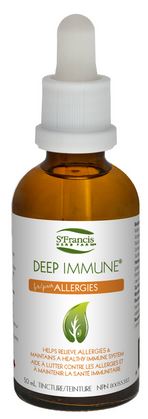 Used in Herbal Medicine to help relieve seasonal allergy symptoms and as an adaptogen to help maintain a healthy immune system. ...Read more |
...Read more |
Stress reducing sleep aid Reduces cortisol levels for all-day stress reduction and restful slee... |
|||||||
|
|
|
|
|
|
|||||
|
|
|
|
|||||||
Pure Encapsulations B Complex Plus 60 Veg Capsules |
AOR Relax & Recharge 90 Veg Capsules |
|
|||||||
|
As a complex, the B vitamins are essential for the proper functioning of the nervous system and are perhaps the most important nutritional factor for healthy nerve cells. The B vitamins also play a role in the conversion of carbohydrates into energy....Read more |
Rhodiola and Ashwagandha are adaptogenic herbs that condition the body to react favourably to stress. They are used in Ayurvedic medicine as a rejuvenative tonic to boost energy and relieve debility ...Read more |
To provide factors and antioxidants for the maintenance of good health. Hops are traditionally used in Herbal Medicine as an aromatic bitter to aid digestion... |
|||||||
|
|
|
Recent Posts
-
Maintain A Healthy Heart Rhythm With Integrative Medicine
Maintain A Healthy Heart Rhythm With Integrative Medicine;Usually, abnormal heart rate or arrhythmi …4th Feb 2021 -
How To Protect Against COVID-19
Coronaviruses are a large group of viruses that cause many common human and animal infections. In hu …30th Jun 2020 -
How to Prevent Gallstones from Forming? | Natural Supplements for Gallstones
How To Prevent Gallstone Formation?Gallstones are hard deposits made of cholesterol or bilirubin f …4th Mar 2020

